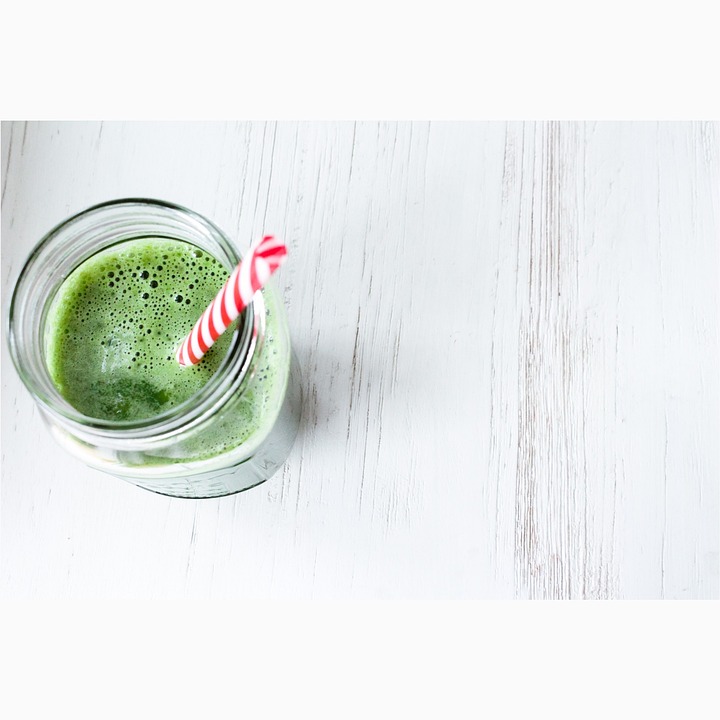Celery juice has recently become popular for its purported health benefits, including weight loss, increased energy during exercise, and improved skin appearance. The nutrition value of celery juice varies a lot depending on what ingredients are in your drink. Some celery juice recipes and products sold in stores contain other juiced vegetables in addition to celery.
Celery Juice Nutrition Facts
The USDA provides the following nutrition information for one cup (8 ounces or 236g) of celery juice.
- Calories : 33
- Fat : 0.4g
- Sodium : 189mg
- Carbohydrates : 7g
- Fiber : 4g
- Sugars : 3g
- Protein : 2g
Carbs
However, one cup of celery juice generally contains around five grams of carbs. How many carbs are in celery juice varies depending on the brand or recipe, but is typically around five grams per cup. Many commercially prepared celery juice drinks are actually blends of several different types of juices.
For example, many single-serving celery juice beverages available online include other fruits and vegetables such as apple, cucumber, cilantro, spinach, and lemons or limes. The addition of fruits and vegetables to a drink containing celery can improve the flavor, which can otherwise be bland and bitter. According to the nutrition label, one green celery juice blend produced by The Foundation of Juice contains 120 calories, 29 grams of carbohydrate, 23 grams of sugar, and less than one gram of fiber.
The main source of carbohydrates in celery juice or celery juice blends is naturally occurring sugar. celery juice contains 3 grams of sugar per cup. One cup of raw celery contains approximately 2 grams of sugar, according to the United States Department of Agriculture. If you drink the juice, you will be taking in more sugar because it is made from several cups of celery.
Fiber is also present in celery juice, though the amount present depends on how the drink is made. Pulpless juicing machines remove the fiber-rich pulp from fruits and vegetables, reducing the amount of fiber in the final drink. The fiber is in the thick, pulpy part of the drink.
The glycemic index of celery is zero. The estimated glycemic load (GL) of raw celery is also very low. The glycemic load of a given food takes into account the serving size in order to estimate its impact on blood sugar. The glycemic index is not the only factor to consider when choosing foods based on their effects on blood glucose. The glycemic load of celery juice may be slightly higher than celery because the fiber may be removed.
Fats
Celery and celery juice does not contain any fat. Most fruits and vegetables, including celery, contain zero grams of fat. Even if your celery juice is made commercially with other ingredients, it’s not likely that drinking the beverage will make you fat.
Protein
One serving of celery juice may contain up to two grams of protein. This amount is the same whether the juice is made at home or bought from a store.
Vitamins and Minerals
Whole raw celery contains certain vitamins and minerals. It is likely that the juice will provide these micronutrients when you drink it. The vitamins and minerals in a beverage are determined by the ingredients in the beverage. If the beverage is a blend, it is likely that the vitamins and minerals in the beverage will be different from those in a single-ingredient beverage.
If you drink one serving of celery juice, you will almost have met your recommended daily intake of vitamin K. Vitamin K is a fat-soluble vitamin that helps with blood clotting functions in the body. If you consume a 2,000 calorie per day diet, you’ll also benefit from 14 mg of vitamin C, or 19 percent of your total recommended daily intake. A single, one-cup serving of celery juice will give you 16 percent of your daily recommended intake of vitamin B6.
If you consume 0.2 grams of riboflavin, you will get 15% of the recommended daily amount. You will also get 9% of the recommended intake of vitamin A.
Celery juice contains minerals such as calcium and potassium. The juice contains small amounts of copper, magnesium, iron, and phosphorus.
consuming juice. It is better for your body to eat whole fruits and vegetables rather than Fruits and vegetables that are whole typically have less sugar and more fiber than juicing them would create. However, if you are trying to increase your intake of certain vitamins, the juice may provide a higher concentration than eating a single serving of the food.
Calories
A one-cup serving of celery juice has 33 calories. Celery does contain some calories, even though they are very low in number. A portion of the calories come from carbohydrates and fiber. Fiber is not absorbed by the body. But you also gain calories from sugar and protein.
The Role of Celery in Health History
Celery has been a part of cultures all around the world for a long time. Celery stalks and leaves have been mentioned in connection with ancient kings and warriors, including King Tutankhamun of Egypt and the horses of Troy’s gladiators in the Iliad by Homer.
Celery is one of the most inexpensive and accessible vegetables and has been found in stews, sauces and other dishes made by people from all walks of life throughout history.
It contains a lot of vitamins and minerals that help with energy and staying healthy, as well as preventing future sickness.
In the late 20 th century, the diet industry commodified celery due to each stalk being very low in calories, making it a suitable snack for those watching their food intake.
The celery juice movement has bettered the position of this superfood from one affiliated with weight loss to one associated with overall health and wellness.
Juicing vs. Eating Celery: Which Is More Beneficial?
celery is used in many different ways by cultures all over the world. American families often eat celery as a snack with a spread like peanut butter or hummus, or include chopped celery in dishes like stews or Thanksgiving stuffing.
Celery juice is not a new concept, but it has become much more popular in recent years. If you’re only just hearing about the benefits of celery juice now, despite having been passionate about health and wellness for a long time, you’re not alone.
One advantage of juicing celery over eating it is that fiber is removed in the juicing process.
Some nutritional experts believe that juicing celery can have physical healing benefits and people can consume more celery at one time than if they were eating it.
Celery juice has been shown to improve digestion by helping to strengthen bile. Bile is a crucial part of the digestive system and helps to break down fats in the body. Healthy bile is important for eliminating waste and toxins from your system, keeping your digestion smooth, and your liver free of excess toxic substances.
Despite the fact that juicing celery can have many health benefits, eating it whole can also be beneficial to your health.
If you enjoy juicing, adding celery juice to your daily routine can increase your energy levels, as well as provide vitamins and minerals to keep your body strong.
Health Benefits
People who like celery juice say that it can have many positive effects on health and appearance.
They claim that it aids weight loss, boosts energy during workouts, and helps your skin to look radiant and healthy. There is some research that suggests that these claims may be true, although experts are not confident enough in the research to recommend any single beverage as a solution to good nutrition.
Boosts the Immune System
Celery juice provides a healthy dose of vitamin C. Since our bodies cannot produce vitamin C, we must get it from our diet. Vitamin C is important for a strong immune system, healthy bones and connective tissue, and proper blood vessel function. Vitamin C helps with the absorption of iron and healing of wounds.
Although scientists are still exploring the extent of the benefits, vitamin C may also provide more important medical benefits. NIH states that Vitamin C might help with the prevention or slowing down of certain diseases such as cancer and cardiovascular disease. This is due to the antioxidant activity of Vitamin C which limits the damage of free radicals.
Aids in Weight Loss
Eating celery or drinking celery juice may help you lose weight by increasing your fiber intake. Fiber can help to make you feel fuller for longer which may help to avoid snacking unnecessarily. Fiber promotes digestive health by helping the digestive system function properly and may also help to maintain healthy cholesterol levels.
Helps With Blood Clotting
Celery juice is most beneficial to health in terms of vitamin K content. Vitamin K is crucial for proper blood clotting. Vitamin K is important for people who are on blood thinners because it helps with blood clotting.
Supports Healthy Bones
Vitamin K is also important for healthy bones. People who don’t get enough vitamin K are more likely to develop osteoporosis. A serving of celery juice provides 69 micrograms of vitamin , which is necessary for healthy bone development.
May Help Lower Cholesterol
According to a 2015 animal study, moderate consumption of celery leaf extract may help to reduce onsystolic blood pressure and cholesterol levels, potentially providing a treatment option for hypertension.
Skin Benefits of Celery Juice
Celery juice not only has general health benefits, but also many positive effects specific to the skin.
Clears Skin
Celery juice is believed to improve the appearance of skin, including reducing blemishes and acne scars. Celery juice’s high water content helps keep the skin hydrated, which is good for skin texture and healthy oil levels.
Stimulates Hair Growth
Celery juice’s antioxidants help protect the scalp’s blood vessels from free radical damage. This can prevent hair loss and even stimulate increased hair growth. Celery juice contains vitamins that are good for the health of your hair follicles and making your hair strong and shiny.
Mental Benefits of Celery Juice
A large part of your overall wellbeing is made up of your mental health. The physical benefits of celery juice are balanced by mental benefits that can improve quality of life.
Helps to Stabilize Mood
Celery juice can help improve your mood by providing nutrients and reducing inflammation in the body.
Though celery juice shouldn’t be used as a replacement for medication, it can help supplement medical treatment for mental health.
Reduces Memory Loss
Celery juice has been shown to help slow the progression of memory loss in studies. Drinking celery juice regularly can help support cognitive health and prevent the development of similar problems in the future
How to Get the Most out of Your Celery Juice Cleanse
If you want to improve your health with a celery juice cleanse, you should do it the right way to get the most benefits. Here are some things to keep in mind when adding celery juice to your daily routine:
Is Celery Juice Safe to Drink Every Day?
Celery juice is absolutely safe to drink every day. The best way to get the most benefits from celery juice is to drink around 16 ounces of it first thing in the morning.
If you want to see increased benefits from celery juice, you can drink anywhere from 24 to 32 ounces of it spread out throughout the day. It is best to use organic celery for juicing, but if you cannot access organic celery, make sure to wash it thoroughly before juicing.



